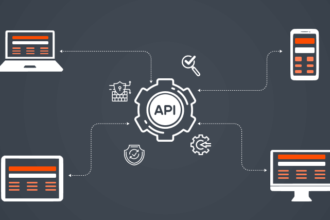Introduction
When it comes to healthcare, most people think of hospitals, emergency rooms, or specialists. Yet, the most important professional in your health journey is often overlooked—the Primary Care Physician (PCP). A Primary Care Physician is not only the first doctor you see when you are unwell but also the one who builds a long-term relationship with you, guiding your health at every stage of life. From preventive checkups and early diagnosis to chronic disease management and lifestyle counseling, a PCP is the cornerstone of comprehensive medical care.
Who Is a Primary Care Physician?
A Primary Care Physician is a medical doctor who provides continuous and comprehensive healthcare to patients of all ages. Unlike specialists who focus on one organ system, a PCP takes a holistic approach. They look at the big picture of your health—your body, mind, habits, and family history. This broad perspective allows them to recognize patterns, detect early signs of illness, and recommend the right steps before minor issues become major problems.
PCPs are trained in various fields of medicine. Some focus on family medicine, caring for both adults and children, while others specialize in internal medicine, focusing exclusively on adults. Pediatricians serve younger patients, and geriatricians provide care tailored to seniors. Regardless of their focus, the role of a Primary Care Physician remains the same: to be the first point of contact and the steady guide in your health journey.
The Role of a Primary Care Physician in Preventive Health
One of the greatest strengths of a Primary Care Physician is their emphasis on prevention. Rather than waiting until you are sick, a PCP encourages you to stay ahead of disease. Annual wellness visits, screenings for conditions like diabetes or high blood pressure, vaccinations, and lifestyle advice all come under preventive care.
When you visit your PCP regularly, you give yourself the best chance of identifying problems early. Many chronic illnesses such as heart disease, cancer, or diabetes develop quietly over years. A Primary Care Physician uses routine checkups and lab tests to spot warning signs before they escalate. By focusing on prevention, they help reduce not just your risk of illness, but also the financial and emotional burden of treating advanced disease.
Primary Care and Chronic Disease Management
Modern healthcare faces a significant challenge—chronic conditions. Millions of people live with long-term issues such as hypertension, arthritis, asthma, or diabetes. These conditions cannot be cured overnight, but with the right management, they can be controlled effectively. This is where a Primary Care Physician becomes indispensable.
Your PCP tracks your progress over time, monitors changes in your health, and adjusts treatments as needed. They do not just prescribe medication; they also provide education, counseling, and support to help you manage your condition. For example, a diabetic patient may rely on their PCP not only for medication adjustments but also for advice on diet, exercise, and stress management. This combination of medical expertise and personal guidance makes primary care a vital component in improving quality of life.
Coordinating Your Healthcare Journey
In today’s healthcare system, patients may see multiple specialists—cardiologists, dermatologists, endocrinologists, and more. Without coordination, it’s easy for treatments to overlap or for important details to be missed. A Primary Care Physician serves as the central coordinator of your care.
They maintain a complete record of your medical history and ensure all specialists are working with the same information. If a cardiologist prescribes a new drug, your PCP considers how it interacts with your existing treatments. If you are confused about different recommendations, your PCP helps you make sense of them and choose the best path forward. This role as a care coordinator prevents medical errors, reduces duplication of tests, and ensures you receive safe, streamlined, and efficient treatment.
Building a Long-Term Relationship with Your PCP
Perhaps the most valuable aspect of having a Primary Care Physician is the relationship you build over time. Unlike urgent care clinics or hospitals where you see a different doctor at each visit, your PCP is a consistent presence. They know your medical history, your family background, your habits, and your health goals.
This continuity creates trust. You feel comfortable discussing sensitive issues—whether it’s mental health struggles, lifestyle challenges, or family concerns. Because your PCP understands your unique circumstances, they can offer advice that is personalized and practical. Over the years, this relationship becomes a partnership in which your PCP is not just a doctor but also an advocate for your well-being.
The Human Side of Primary Care
Primary Care Physicians are often the first to notice changes that go beyond physical symptoms. They recognize the impact of stress, social pressures, and emotional struggles on your health. They can provide counseling, connect you with mental health resources, and support you through difficult times. This holistic, human-centered approach is what sets primary care apart from episodic, one-time treatment options.
Why a Primary Care Physician Saves You Time and Money
Many people assume they can skip the PCP and go directly to specialists. While this might seem faster, it often leads to higher costs and fragmented care. A Primary Care Physician reduces unnecessary specialist visits, prevents avoidable hospitalizations, and keeps your care focused. Research consistently shows that people who regularly see a PCP spend less on healthcare overall and enjoy better outcomes.
By catching problems early, providing preventive care, and coordinating treatments, PCPs save both time and money in the long run. They are not just doctors; they are guardians of efficient and affordable healthcare
How to Choose the Right Primary Care Physician
Selecting the right PCP is a personal decision. It’s about more than credentials—it’s about comfort, communication, and trust. When choosing, consider their location, availability, and whether they accept your insurance. More importantly, pay attention to how they listen to you. Do they explain things clearly? Do they give you time to ask questions? A good Primary Care Physician makes you feel respected and heard.
It may take a few visits to build the connection, but once you do, you’ll realize how valuable this relationship can be. Your PCP will become the doctor who knows you best, not just as a patient but as a person.
Primary Care in the Digital Age
The world of primary care is evolving. Today, many PCPs offer telemedicine services, allowing patients to consult their doctor from home. This makes healthcare more accessible, especially for busy professionals, seniors, or those living in rural areas. Digital tools also help PCPs track health trends, share test results quickly, and provide reminders for follow-ups.
While technology changes the way healthcare is delivered, the core value of a Primary Care Physician remains the same: personalized, continuous, and compassionate care.
Conclusion
A Primary Care Physician is much more than a doctor who treats colds or prescribes medication. They are partners in your long-term health, advocates for your well-being, and guides through the complexities of the healthcare system. They focus on prevention, detect problems early, manage chronic conditions, and build a trusted relationship that lasts for years.
In a world where healthcare can feel impersonal and rushed, a Primary Care Physician brings consistency, understanding, and humanity back to medicine. Choosing to have a PCP is not just about convenience—it’s about investing in a healthier, safer, and more fulfilling future.

















